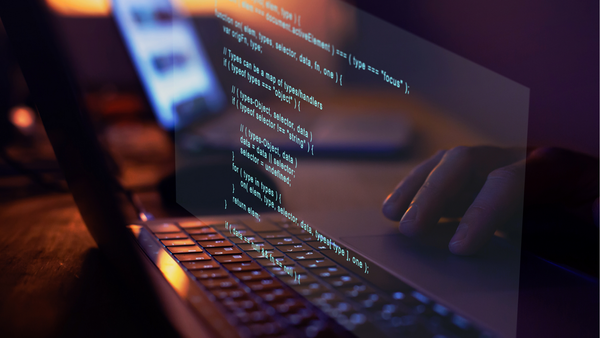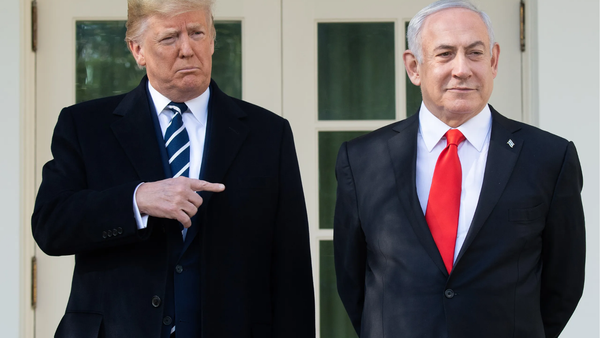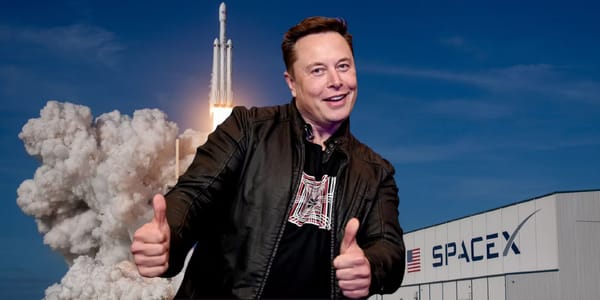Tesla’s Board Have the Moral Fortitude of a Damp Cheeseburger

Tesla’s board should be a check on Musk’s power, but they’ve become Musk’s biggest enablers. From wild conspiracy tweets to unchecked billion-dollar payouts, where is the accountability?
In a Delaware courtroom In January 2024, Judge Kathaleen McCormick dropped a bombshell. With a few choice words, she effectively told the world that Tesla's board of directors—supposedly the watchdogs of one of the most valuable companies in the United States—had all the backbone of a chocolate eclair left out in the Fremont sun.
The judge had just voided Elon Musk's $56 billion compensation package, calling it "an unfathomable sum" born from a "deeply flawed" process.
You'd think that kind of judicial smackdown would prompt some serious soul-searching in Tesla's boardroom. Maybe a few resignations, or at least a strongly worded memo about the importance of independent oversight.
But no.
This is Tesla after all.
Where responsibility goes to die.
The Watchdogs That Didn't Bark
Tesla's board might just take the cake for the most spectacular non-performance in recent memory. These individuals, handpicked to safeguard the interests of shareholders and provide a crucial check on executive power, have watched from the sidelines as their CEO embarks on a series of increasingly erratic, allegedly ketamine-fueled and wildly damaging escapades.
They passively observe as Musk uses social media as his personal megaphone, making market-moving declarations on a whim. They remain mute as he engages in public feuds with regulators, analysts, customers, ethnic minorities, pop stars, judges, nations, ex-partners and his own kids.
They stand idly by as he “juggles” the “leadership” of multiple companies, each demanding his full attention and getting about as much time as he gives to any of his 12 offspring - sweet fuck all.
And most damningly they shuffle their feet when Musk tweets apparent calls to violence against the sitting President and Vice President of the United States.
It's as if they've forgotten that their primary duty is to the company and its shareholders, not to Musk's ego or vision.
No, not as if.
They absolutely have forgotten it.
The Damp Cheeseburger Dilemma
To say that Tesla's board has shown the moral fortitude of a damp, three-day-old cheeseburger might be an insult to stale fast food. At least a moldy burger has the decency to show visible signs of its deterioration.
The board's capitulation, on the other hand, has been a slow, almost imperceptible process—a gradual erosion of responsibility so subtle that it's only when we step back and survey the landscape that we realize how far things have slipped.
But how did we get here? How did a group of ostensibly accomplished individuals reduce themselves to the role of gutless, feckless yes-men and women, seemingly incapable of reining in their CEO's misadventures?
The Tangled Web of Loyalty
Of the eight members, one is Musk himself, and another is his brother, Kimbal. But the connections don't stop there. Five of the six remaining non-executive directors have personal or business ties to Musk or his other ventures. This includes Ira Ehrenpreis, a longtime friend who helped design Musk's controversial 2018 compensation package, and JB Straubel, a Tesla co-founder.
This tangled web of relationships creates a board that looks less like an independent oversight body and more like a close-knit club. As Charles Elson, director of the corporate governance center at the University of Delaware, bluntly put it: with a normal board and normal corporate governance, Musk would have been removed already. “People have been moved on for less."
The board members, accomplished as they may (may) be in their own rights, are caught in the gravitational pull of Musk's charisma and their own conflicting loyalties. They've bought into the narrative of his indispensability, convinced that any attempt to constrain him might clip the wings of innovation itself.
The Cult of Personality
Elon Musk is not just a CEO; he's a brand, a visionary, a modern-day folk hero to his admirers. He has cultivated an image of himself as a maverick genius, a heroic figure single-handedly dragging humanity into a sustainable, interplanetary future.
This carefully crafted persona has created a halo effect, one that extends far beyond Tesla's customers and retail investors.
It has seeped into the boardroom, creating an environment where questioning Musk's decisions is tantamount to questioning progress itself.
But it's not just admiration that stays the board's hand. There's also an undercurrent of fear—fear of what might happen if they were to truly challenge Musk's authority.
Consider the market's reaction to any hint of Musk's potential departure from Tesla. Stock prices fluctuate wildly at the mere suggestion of his stepping down or being forced out. The board members, many of whom have significant financial stakes in the company, are acutely aware of this volatility.
There's a perverse incentive at play here. By not rocking the boat, by allowing Musk free rein, the board members are, in a sense, protecting their own interests. They've convinced themselves that maintaining the status quo, however flawed, is preferable to the uncertainty that would come with asserting their authority.
The Illusion of Success
Tesla, for all its controversies and currently declining sales, has achieved remarkable things. It has revolutionized the automotive industry, pushing electric vehicles into the mainstream. It has consistently defied skeptics, achieving production targets that many thought impossible.
This success creates a powerful confirmation bias. Each milestone reached, each quarter of profitability, serves to reinforce the notion that Musk's unorthodox leadership style is not just acceptable, but necessary for the company's continued success.
The board members, like many others, have fallen into the trap of conflating correlation with causation. They see Tesla's success and Musk's behavior as inextricably linked, failing to consider that the company might be succeeding in spite of, rather than because of, some of his more questionable actions.
You know.
Like tweeting his support for white supremacist conspiracy theories.
Those actions.
The Normalization of Deviance
What we're witnessing with Tesla's board is a classic case of what sociologists call the "normalization of deviance." This is a process whereby people within an organization become so accustomed to deviant behavior that they no longer consider it as such.
In Tesla's case, Musk's Twitter outbursts, his cavalier attitude towards regulations, his habit of making grandiose promises that amount to little more than street barker lies—all of these have gradually become accepted as "just Elon being Elon." The board's failure to address these issues has, over time, implicitly sanctioned them.
This normalization is particularly dangerous because it's incremental. No single tweet, no individual confrontation with a regulator, no missed deadline seems significant enough to warrant intervention. But cumulatively, they create a culture of impunity that can have serious long-term consequences for the company and its stakeholders.
The Cost of Complacency
The board's failure to exercise its oversight responsibilities doesn't just impact Tesla. It sets a troubling precedent for corporate governance as a whole. When one of the most valuable companies in the world is seen to operate with minimal board oversight, it sends a signal to other corporations that such behavior is acceptable, even desirable.
It undermines the very concept of corporate accountability. The board of directors is supposed to serve as a crucial check on executive power, ensuring that the company is run in the best interests of all stakeholders, not just its charismatic leader. When this system breaks down, it erodes public trust in corporations and the market as a whole.
The Mounting Evidence
The consequences of the board's complacency are not theoretical. They've manifested in a series of controversies and legal challenges that have put Tesla and Musk under intense scrutiny:
- In 2018, Musk's infamous tweet about taking Tesla private led to SEC sanctions, yet the board failed to implement robust oversight mechanisms to prevent similar incidents.
- Allegations have surfaced of drug use by Musk with some board members, raising serious questions about the professional boundaries and judgment of those involved.
- Multiple lawsuits have been filed against Tesla alleging racial discrimination and hostile work environment, suggesting woefully fucking inadequate oversight of company culture and HR practices.
- The National Highway Traffic Safety Administration (NHTSA) has opened investigations into Tesla's Autopilot system following several crashes, indicating potential issues with safety claims and disclosures.
- Tesla faces ongoing scrutiny from the SEC regarding its financial reporting and disclosures, particularly related to Musk's social media communications.
- Shareholders have filed lawsuits alleging that Musk's acquisition of Twitter (now X) and subsequent actions have negatively impacted Tesla's stock price and operations.
- The company has been criticized for its approach to union organizing efforts, including a ruling that Musk's anti-union tweet violated labor laws.
- The company faces ongoing legal challenges related to its marketing of Autopilot and Full Self-Driving features, with allegations of false advertising.
- Musk's public statements and behavior have repeatedly caused volatility in Tesla's stock price, raising questions about the board's ability to manage key-person risk.
- The board's decision to allow Musk to simultaneously “run” multiple companies (Tesla, SpaceX, X) has been widely slammed as detrimental to Tesla shareholders.
These incidents paint a picture of a board that has abdicated its responsibilities in favor of rubber-stamping Musk's decisions. As William Klepper, a professor at Columbia Business School, pointedly observed: "The board of directors is not meant to be a cheering committee."
Can Tesla's board—and by extension, other corporate boards facing similar challenges—reclaim their role as effective guardians of corporate governance?
Sure.
But that would require them to show some/any moral and ethical courage- by acknowledging that their current approach is reckless and unsustainable. True loyalty to the company and its shareholders means being willing to challenge its leadership when necessary. It arguably became necessary several fucking years ago.
The board has to reassert their independence. Or even assert it for the first damn time. Even if that means bringing in new board members who have no prior connection to Musk, individuals who can provide a fresh perspective and are less likely to be swayed by what goes for “charisma” in Musk’s world.
Most importantly, the board needs to rediscover its collective spine. They have be willing to stand up to Musk when necessary, when it means short-term market volatility, and when it risks bleating tweets from the man himself. The long-term health of the company and the integrity of its corporate governance depend on it.
Tesla's board members have a choice to make. They can continue down their current path, clinging to the fetid, decayed remnants of their oversight responsibilities. Or they can rise to the fucking occasion, assert their authority and demonstrate the kind of moral fortitude that their positions demand.
I don’t know about you, but I’m not holding my breath.






